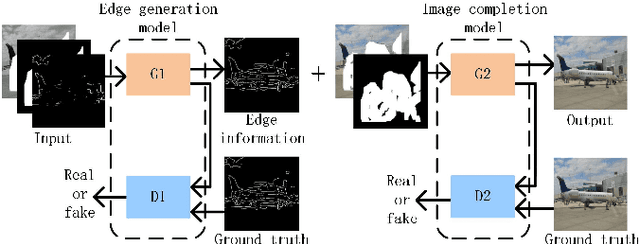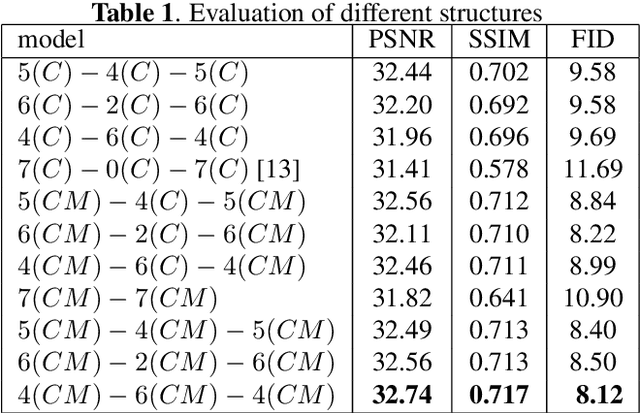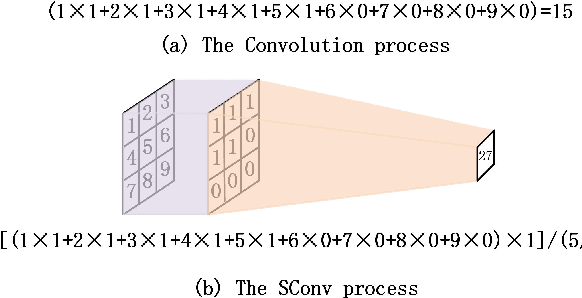An Edge Information and Mask Shrinking Based Image Inpainting Approach
Paper and Code
Jun 11, 2020



In the image inpainting task, the ability to repair both high-frequency and low-frequency information in the missing regions has a substantial influence on the quality of the restored image. However, existing inpainting methods usually fail to consider both high-frequency and low-frequency information simultaneously. To solve this problem, this paper proposes edge information and mask shrinking based image inpainting approach, which consists of two models. The first model is an edge generation model used to generate complete edge information from the damaged image, and the second model is an image completion model used to fix the missing regions with the generated edge information and the valid contents of the damaged image. The mask shrinking strategy is employed in the image completion model to track the areas to be repaired. The proposed approach is evaluated qualitatively and quantitatively on the dataset Places2. The result shows our approach outperforms state-of-the-art methods.
 Add to Chrome
Add to Chrome Add to Firefox
Add to Firefox Add to Edge
Add to Edge